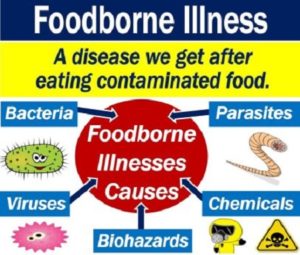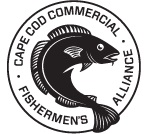With summer in full swing and, after several months of staying indoors, barbecues, picnics, camping, and other food-focused outdoor gatherings provide an excellent way to gather safely for some much needed COVID-19-responsible socializing.
Medicinal herb and spice expert Dr. Cass Ingram, author of the classic book The Cure is in the Cupboard, reminds us that if we’re not careful, our long-anticipated time with family and friends could too-easily result in miserable memories of foodborne illness.
Here are Dr. Ingram’s summer food preparation tips to help ensure our outdoor festivities – as well as our food – aren’t spoiled.
Keep things clean: Wash your hands and wipe surfaces often. Germs that cause food poisoning can survive in many places and spread around the kitchen. The CDC recommends washing hands for 20 seconds with soap and water before, during, and after preparing food and before eating. Wash utensils, cutting boards, and countertops with hot soapy water. Rinse well fresh fruits and veggies.
Separate: Don’t cross-contaminate. Raw meat, poultry, seafood, and eggs can spread germs to ready-to-eat foods unless you keep them separate. Use separate cutting boards and plates for raw meat, poultry, and seafood. When grocery shopping, keep raw meat, poultry, seafood, and their juices away from other foods. Keep raw meat, poultry, seafood, and eggs separate from all other foods in the fridge.
Cook to the right temperature:Food is safely cooked when the internal temperature gets high enough to kill germs that can make you sick. You can’t tell if food is safely cooked by checking its color and texture. The only way to tell if food is safely cooked is to use a food thermometer: 145°F for whole cuts of beef, veal, and lamb 160°F for ground meats, such as beef 165°F for all poultry, including ground chicken and turkey 165°F for leftovers and casserole 145°F for fish or cook until flesh is opaque.
Use multiple coolers:Pack raw meats separately from ready-to-eat foods, such as prepared salads, fresh fruits, and vegetables, and have a separate cooler for cold beverages. Ice for beverages should be kept separate from the ice used to cool food and beverages.
Use essential spice oils as an insurance policy. No one can be sure where commercial produce comes from or how it’s grown or handled. After washing your produce thoroughly, soak it for a few moments in a bowl of pure water infused with a couple drops of oil of oregano. In particular, soak commercial berries and leafy vegetables as these are readily contaminated by microbes.
Germ-proof your recipes by adding antimicrobial herbs. Oil of oregano, as well as the crushed herb, are safe for use in foods like soup, sauces, entrees, and salads, where its volatile antimicrobial compound carvacrol can inactivate all food-borne pathogens in its vicinity.
Use essential oils to relieve food poisoning symptoms. Oil of oregano can be consumed daily in therapeutic quantities to treat virtually any type of food-borne illness.
ABOUT DR. CASS INGRAM
Dr. Cass Ingram is a foremost expert in medicinal herbs and spices. He received a B.S. in biology and chemistry from the University of Northern Iowa (1979) and a D.O. from the University of Osteopathic Medicine and Health Sciences in Des Moines, IA (1984). He has written 30 books on natural healing, including The Cure is in the Cupboard. He has been an invited guest on hundreds of radio and television programs across North America and the UK.

























